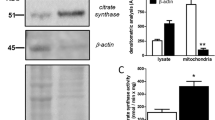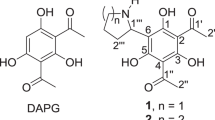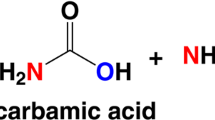Abstract
DURING work on the production of trimethylamine by organisms isolated from the flora of the whale, it was found that some types were able to produce this substance from choline1. Similar observations on organisms from other sources had been made previously, the products of the degradation of choline characterized as trimethylamine and ethylene glycol, and the enzyme responsible named ‘choline deaminase’2. No kinetic information was available, nor had the specificity of the enzyme been determined, though it had been reported that certain Enterobacteriaceæ produce trimethylamine from acetylcholine but not from betaine3, so investigation of these questions seemed likely to prove fruitful.
This is a preview of subscription content, access via your institution
Access options
Subscribe to this journal
Receive 51 print issues and online access
$199.00 per year
only $3.90 per issue
Buy this article
- Purchase on Springer Link
- Instant access to full article PDF
Prices may be subject to local taxes which are calculated during checkout
Similar content being viewed by others
References
Robinson, R. H. M., Ingram, G. C., and Eddy, B. P., J. Sci. Food Agric., 3, 175 (1952).
Cohen, G. N., Nisman, B., and Raynaud, M., C.R. Acad. Sci., Paris, 225, 647 (1947).
Dyer, F. E., and Wood, A. J., J. Fish. Res. Bd. Can., 7, 17 (1947).
James, A. T., Martin, A. J. P., and Smith, G. H., Biochem. J., 52, 238 (1952).
Author information
Authors and Affiliations
Rights and permissions
About this article
Cite this article
EDDY, B. Bacterial Degradation of Choline. Nature 171, 573–574 (1953). https://doi.org/10.1038/171573b0
Issue Date:
DOI: https://doi.org/10.1038/171573b0
This article is cited by
-
Metabolism of trimethylamines in kelp bass (Paralabrax clathratus) and marine and freshwater pink salmon (Oncorhynchus gorbuscha)
Journal of Comparative Physiology B (1988)
-
Zur Biogenese Fl�chtiger Amine Beim Mutterkorn-Pilz Claviceps Purpurea
Planta (1965)
Comments
By submitting a comment you agree to abide by our Terms and Community Guidelines. If you find something abusive or that does not comply with our terms or guidelines please flag it as inappropriate.



